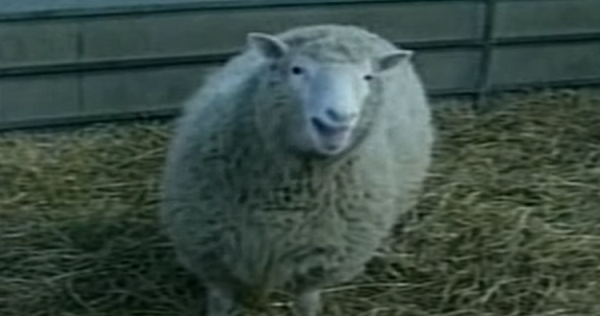
The Volga waltz choreographed by Dolly, the loveable sheep earning the historical distinction of the first mammal to be cloned, pairs the Dancing With the Stars duo of Justin Smollett and Amber Heard orbiting the stage through a fluttery fugue of octaves and dramatic pauses. While credibility is scarce on the duality of one transfixing a primetime audience of pseudo-intellectual dog moms dreaming of echoing the ascension of career politician Patty Murray through the ranks of neighborhood association to mainstream politics, the legacy of the cherished ovine can only watch in horror. The science of cloning, stagnant within the context of the corporatized media, has been reinfused with the vigorous efforts of a University of Indiana research team, and as the trajectory shifts towards novel advancements, Dolly’s indifferent “baa” is an irreverent non-sequitur to the trend that a sliver humanity may be onto something.
As Coronavirus and the US regime change have saturated headlines and topped e-trending social media lists over the last 27 months, advancements outside of Covid-19 vaccines and college campus clickbait dramas have all but been absent from news purveyors. While society is probably better off in not being bombarded by the latter hysteria of vernacular offending a group of coeds to the extent that crises and bubble tea rooms furnished by tax payer monies are overburdened with hysterics, the sabbatical taken by scientific innovations has been eerily unsettling. As the reasonable factions of the nation ween themselves from the corporatized media, as IQ diminishing content is consumed by the masses like the Tide pod challenge, thought provoking narratives are making a slow return.
The IU research squad has experimented with cloning the actual immune system of individuals in a software environment and furnishing a template for hardcore research without the threat of harm or death to the patient. This exciting and beneficial potential breakthrough will the aid the study of how the human defense system, unique for every person, reacts to pathogens, drugs, and the multitudinous factors that constitute life. Referred “immune digital twins”, the project will encompass virtual reality, AI modeling, and intensive medical knowledge to brandish a simulated environment that matches protein for protein a subject’s DNA that will hopefully be built into an exact electronic and pixilated clone.
According to the official University of Indiana website, professor James Glazier published a journal of his team’s findings in 2021 specifying how smart software can be integrated into improving and streamlining cures for the entire gamut of illnesses. He later co-founded a group appropriately named “Multiscale Modeling and Viral Pandemics” linking over 200 scientists on an international scale contributing refining the process of mapping the immune system digitally. In the wake of the human genome successfully replicated through the brute force of computer processing power which culminated in 2013, the earth shattering accomplishment marked the evolution of active modeling and AI. The dreamlike aftermath has produced an exponential increase in healthcare apps available to scientists and consumers along with some fabricated optimism. Allegedly, a child born that will exceed over 150 years of age, which will eventually have sweeping ramifications on socio-economics through a spike in longevity.
The proactive philosophy to enact a preemptive and aggressive approach in studying maladies and finding answers embraced by Glazier and colleagues is a microcosm of the medical renaissance boosted by the prevalence of smart software. By removing the unethical risks of live embryonic and human testing from historically ghoulish, yet effective experiments, at least the healthcare community will enjoy a brief respite from stark criticism until the PC lobby demands that AI’s are treated equally. Until that disappointing impasse arrives, the memory of Dolly can serve as both an inspirational and cautionary tale that modern society tends to follow the flock without asking questions. However, in the case of the endearing iconic biological copy of a farm animal and for the sake of innovation in certain instances, conformity has its advantages.